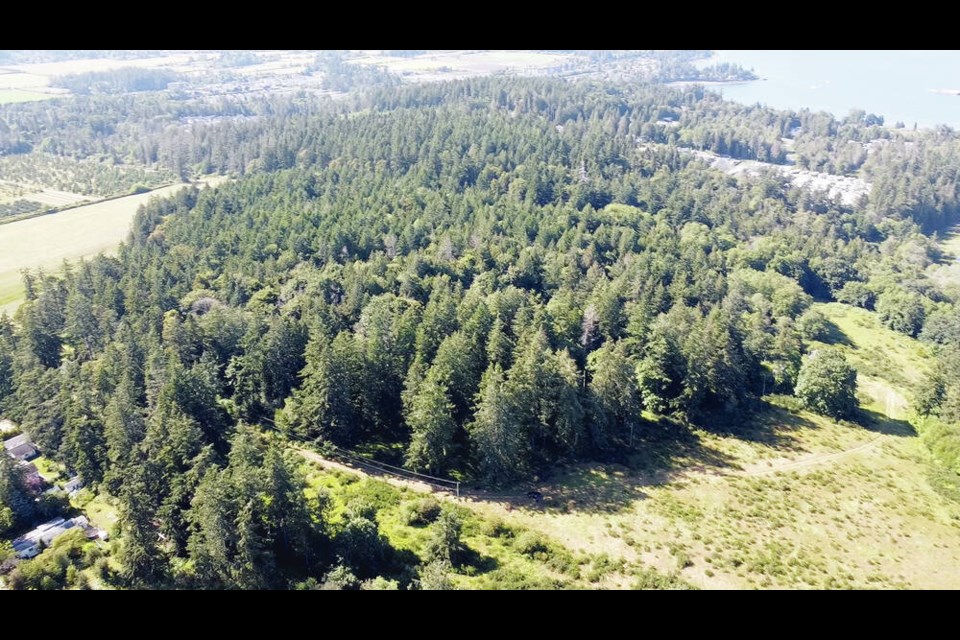Tsawout First Nation has announced the purchase of a 99-acre farm on the Saanich Peninsula where it plans to build housing.
Chief Abraham Pelkey said the purchase of the property at 7245 Puckle Rd., south of the nation’s main reserve lands in Saanichton, was a long-term goal of the Tsawout Nation, which had been looking to expand its land base for many years.
The nation said the land, offered at a price well below market value as an “act of reconciliation” by the seller, increases its land base by just over 15 per cent. Talks began in December and the $5.6-million sale was made in May.
Pelkey said the land will be used to meet future housing needs and provide economic benefits for nation members, but did not offer specifics.
Last month, the provincial government amended land registration laws to allow First Nations to hold and register fee simple land, leaseholds and other interests in the same way that individuals and corporations do.
Tsawout is in talks to revert the property’s Agricultural Land Reserve designation and incorporate the Puckle Road property directly into the nation’s reserve lands, Pelkey said.
“The government really doesn’t have a process to revert such lands … not that it hasn’t been done, but there is no formal process,” he said.
The property’s partial Agricultural Land Reserve designation would make it subject to develop ment restrictions to protect farmland.
Currently, the lands are held by the Tsawout Land Trust Society.
Of the roughly 1,400 Tsawout band members, only 430 live on the Saanichton reserve due to the nation’s limited land base, Pelkey said.
Many Tsawout members want to return to the reserve, he said. “We will always welcome our members back that are abroad.”
The Puckle Road property, northwest of Island View Beach, already has road access and is well suited for future development, he said.
The partially forested property is close to utilities, such as a sewage treatment plant, and is near planned access improvements, the nation said. The only structure on the property is a 598-square-foot barn built in 1950, according to sa国际传媒 Assessment.
Tsawout elder Mavis Underwood said that land reclamation is crucial to cultural revitalization and ensuring a bright future for Tsawout youth.
Pelkey said he’s overjoyed the land is being returned to W瘫SÁNE膯 hands, even if having to buy lands promised to the W瘫SÁNE膯 people under the Douglas treaties is a bit sad.
“They were supposed to give us the enclosed fields and village sites and more for future growth, but that didn’t happen,” he said.
On Thursday, Tsawout will hold a celebration and land blessing at the property.
Prior to the purchase, the property was sold in 2018 for $2.5 million.
— With a file from Carla Wilson
>>> To comment on this article, write a letter to the editor: [email protected]



